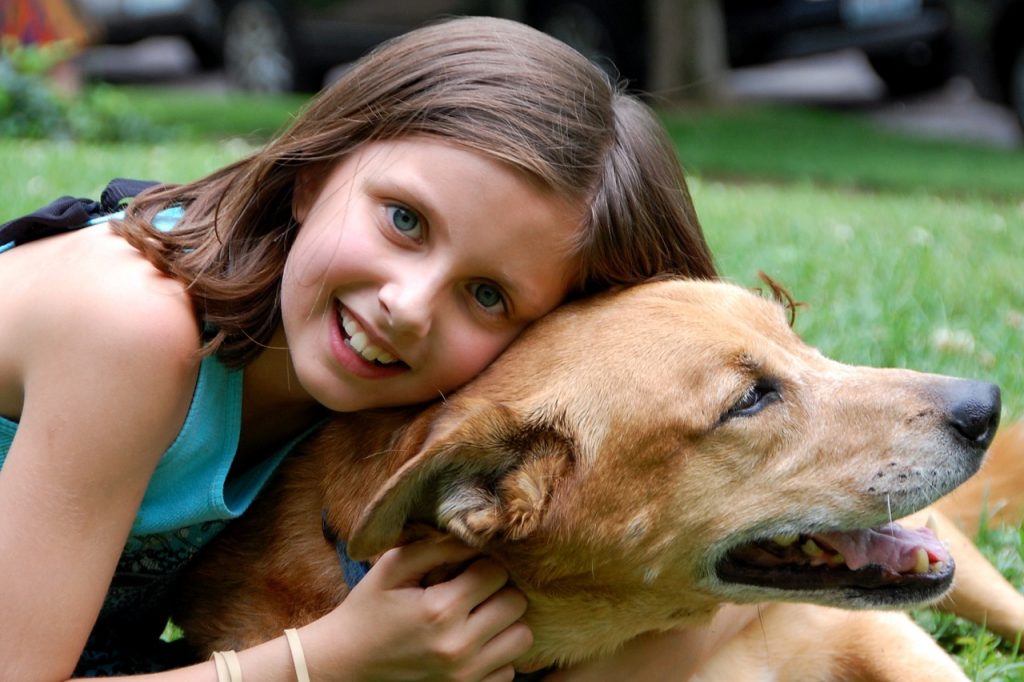How Pets Can Be Exceedingly Beneficial For Kids
Pets can bring so much joy to a household, but pets can benefit kids in positive ways that you may not be aware of.
This article is more than 2 years old

It’s no surprise that pets can benefit kids in many different ways. From couples to parents to housemates, having an animal can help with feelings of anxiety, loneliness, and stress. A recent study showed that more than 60% of US families with a child under 12 have a pet in the house, and for good reason. Having an animal in the home, like a dog or a cat, can teach children how to care for another being as well as teach responsibility and compassion.
Pets can benefit kids with a few socializing qualities like understanding empathy. Caring and looking after a pet can show a child how to feel compassionate towards others, which might be harder to unlock with a classmate or sibling. Recent studies have shown that the benefits are even more substantial, suggesting that having an animal around could increase children’s vital cognitive functions and boost physical and mental health. For children with autism, caring for a pet can significantly decrease stress and help form social bonding.
Even with an animal nearby, pets can benefit kids almost instantaneously with their presence. Research had shown that kids made fewer mistakes on tests like categorization when a dog was in the same room. The same study showed that pets could help kids memorize information better. Those benefits don’t stop for adults, either. Studies have shown that viewing a pet as a family member can increase a person’s well-being and happiness. Dogs and cats invited into the family structure have lasting positive results for both parents and their children.
Though pets can benefit kids through many different avenues, some scientists are trying to figure out exactly how animals improve our mental functions. Hayley Christian, a professor at the School of Population and Global Health at the University of Western Australia in Perth, is working to discover how impactful pets are to our well-being. After studying 4,000 kids from age five to seven, those with pets in the house had more prosocial behavior, like helping, sharing, and comforting others. Children involved in pet care also showcased fewer signs of issues between peers.
The most tangible physical and mental benefit dog ownership has on children is the family walks. It’s no secret that physical activity can improve one’s mental state and boost serotonin, but group walks with parents, children, and their pets have even more crucial advantages. Kids who engaged in regular dog-related physical activity were more likely to have positive developmental results. The study showed that these kids had fewer peer issues and conduct problems and had higher confidence levels. Pets can benefit kids in having better moods and overall physical health.
Researchers still want to ensure that people assess their general familial needs before purchasing a pet. Not all families would be better after purchasing an additional living being to take care of, especially families dealing with complex medical conditions or who can’t financially sustain a dog or cat. Pets can benefit kids in specific ways, but that shouldn’t come as a sacrifice to a household’s economic stability.




